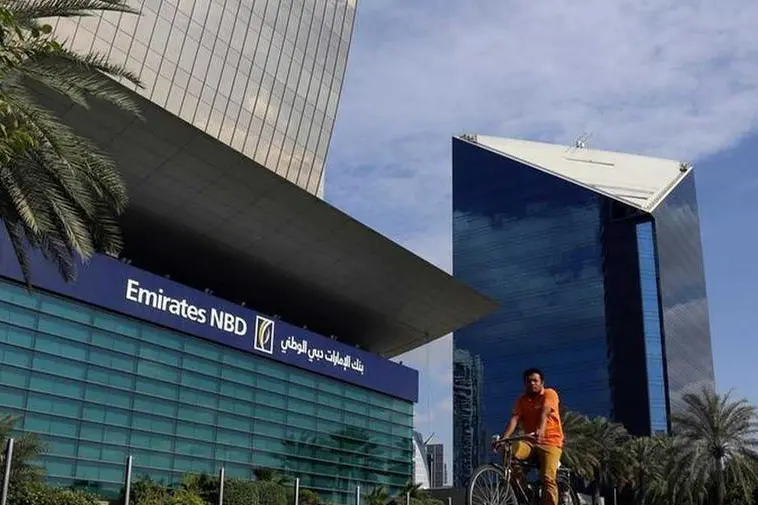PHOTO
Dubai will be a key driver of the UAE's resilience with its non-oil economy on track to record a 3.7 per cent growth in 2018.
Business confidence reached a 34-month high in the UAE as the non-oil private sector witnessed an uptick in growth momentum in April driven by stronger improvements in output, new business and employment, a survey by Emirates NBD said.
"The improvement in business condition in the UAE in April was driven by strong output and new order growth, including a recovery in export orders. The rise in employment and selling prices, although modest, is also encouraging," said Khatija Haque, head of Mena research at Emirates NBD.
Reflecting the rising confidence on overall economic prospects, Emirates NBD UAE Purchasing Managers' Index (PMI) rose to 55.1 in April, from 54.8 in March.
"In April, backlogs of work increased at the fastest rate in 32 months, linked to steeper new order growth. Inflationary pressures sharpened as businesses and input suppliers capitalised on stronger demand conditions in the non-oil private sector," said the bank.
The report noted that in April saw new order books from both domestic and foreign sources recorded an increase. Internal demand for goods and services grew at a marked rate that was above the long-run average. Meanwhile, new business from abroad returned to growth in the latest survey, increasing at a moderate rate overall.
"Reflecting rising output requirements in the non-oil private sector, job creation ticked up in April's survey, following the 17-month low in March. Despite the rise in employment, robust demand continued to place pressure on operating capacity, as signalled by the strongest rise in backlogs of work for 32 months," said the report.
The latest Global Economic Conditions Survey (GECS), from the Association of Chartered Certified Accountants and the Institute of Management Accountants, shows that confidence in the UAE is at a fairly elevated level by recent standards.
"The pick-up in confidence in the UAE is due in part to the fading impact of last year's Opec production cuts. Other reasons include an increase in non-oil exports on the back of strong global growth, extra spending ahead of the 2020bWorld Expo and a less restrictive fiscal Policy," GECS said.
On Wednesday, the International Monetary Fund said that the UAE non-oil economy is set for a strong rebound with a projected growth of 2.8 per cent in 2018 and 3.3 per cent in 2019 after a slowdown to 1.9 per cent last year.
Dubai will be a key driver of the resilience with its non-oil economy on track to record a 3.7 per cent growth in 2018 compared to 3.3 per cent in the previous year, IMF data shows.
According to the Emirates NBD survey produced by IHS Markit, both input cost and output charges increased during April. Average cost burdens faced by non-oil private sector firms in the UAE increased at a moderate rate overall. Many respondents noted a general increase in operating costs, linked to rising raw material costs alongside higher staff wages.
Responding to stronger demand conditions and greater cost burdens, firms raised their output charges for the first time since the start of the year. The rate of output price inflation was modest overall.
"Positive sentiment towards future growth prospects improved sharply in the latest survey. An expected economic upturn, new product launches and improved marketing strategies underpinned business confidence in April," it said.
Copyright © 2018 Khaleej Times. All Rights Reserved. Provided by SyndiGate Media Inc. (Syndigate.info).





















